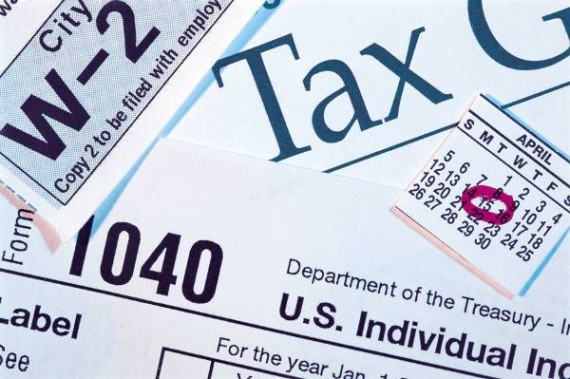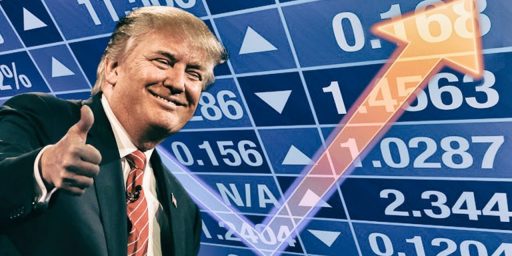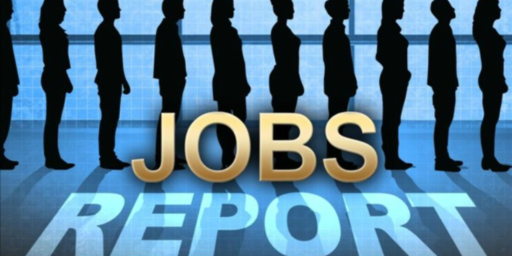Tax Cuts and the Post Hoc Ergo Propter Hoc Fallacy
Minor fluctuation in tax rates is not the most significant thing happening in the world's largest economy.
Jonathan Chait dismisses a claim about “the intellectual collapse” of President Obama’s position on taxes thusly:
An intellectual collapse would mean that economists had come to agree with the Republican view that the 1993 Clinton tax hike destroyed the work incentive for the rich and dampened growth, and that the Bush tax cuts sparked a wave of rapid job growth from 2001-2010. That, uh, hasn’t happened.
Whatever the merits of a modest change in the highest marginal tax rate, this is silly. No one worth paying attention to seriously thinks that a two or three percent change is going to have a radical impact on the world’s largest economy; the debate is over fairness and impact on the public revenue stream.
There was a boom subsequent to the (modest) Clinton tax hikes. While there’s debate as to whether the yield to the Treasury would have been higher or lower absent said hike, the fact of the matter is that the much more important factors were the post-Cold War cuts in Defense spending and the massive new revenue brought in by the dot.com bubble.
Which, incidentally, burst towards the end of Clinton’s presidency and brought on a mild recession. Which, of course, was not brought on by tax policy.
The incoming Republican president, naturally, used said recession to bolster his ideological argument for tax cuts to stimulate the economy. And, indeed, we quickly got out of the recession, albeit without a massive creation of new jobs. But that wasn’t because of a modest cut in tax rates — there’s no economic theory of which I’m aware that would link the two — but because of a continuing trend of replacing relatively high paying American jobs with technology and/or cheap foreign labor.
Tax policy is important at the margins. But the Republicans have won this one, such that the debate is no longer about whether we should have 92 or 70 percent top marginal rates — as we have in living memory — but where in the mid-30s it should be. Let’s not pretend, then, that these decisions are the primary mover and shaker in a 14 trillion dollar economy.







“No one worth paying attention to seriously thinks that a two or three percent change is going to have a radical impact on the world’s largest economy”
I agree. Which is why it is now many long years since I have found it not worth paying attention to Republicans. This has been their standard argument.
Tax rates are one part of the equation. They do not operate without the influences of other inputs to the economy. What effect did the dot.com bubble have on the economy of the 90’s? The war during the Bush presidency? Even now how long will the housing collapse influence the economy? It’s complex to say the least but it has become clear here and abroad that stable and low tax rates are good for economic growth and will eventually lead to increased revenues over the long run.
While we all blather about tax hikes we are ignoring the real problem of spending.
Thank you for a rational, dogma free analysis of taxes affect on the economy. There is more to an economy that just taxes. Funny how the dogmatists don’t seem to notice that Germany, with the highest tax burden in the EU is the strongest economy, while Ireland, with lower than average personal and one of the lowest corporate rates is in deep trouble.
There are many parts of the equation. You also need leverage. You can’t keep lowering more and more taxes and get much out of it. You can’t keep lowering interest rates more and more and get much out of it. There are consequences and you need to solve the problems. And you can’t create jobs if you are sending jobs overseas.
“No one worth paying attention to seriously thinks that a two or three percent change is going to have a radical impact on the world’s largest economy…”
This is absolutely correct. But Tano’s simplictic assertion aside, there is much more going on here. Until the recent election all the power, and rhetoric, was leftist. It was not clear that the marginal income tax rate would rise only 2 or 3 points. When the only logic is “they’ve got enough money, so pay more,” the sky is the limit.
Further, Obamacare came with tax increases and other costs to employ, the capital gains tax rate was in question, the estate tax exemption was in question, the financial stakeholders of two major car companies were cast aside and unrightfully gifted to labor, and on it goes.
Anyone who does not understand the chilling effect these issues have had on small businesses isn’t a small business owner, or doesn’t speak with many small business owners.
I feel they are wrong. When they had a chance to speak up about these tax cuts, they were silent. Now they want to be heard and it is too late. Yes, the Republicans have them over a barrel but they only have themselves to blame.